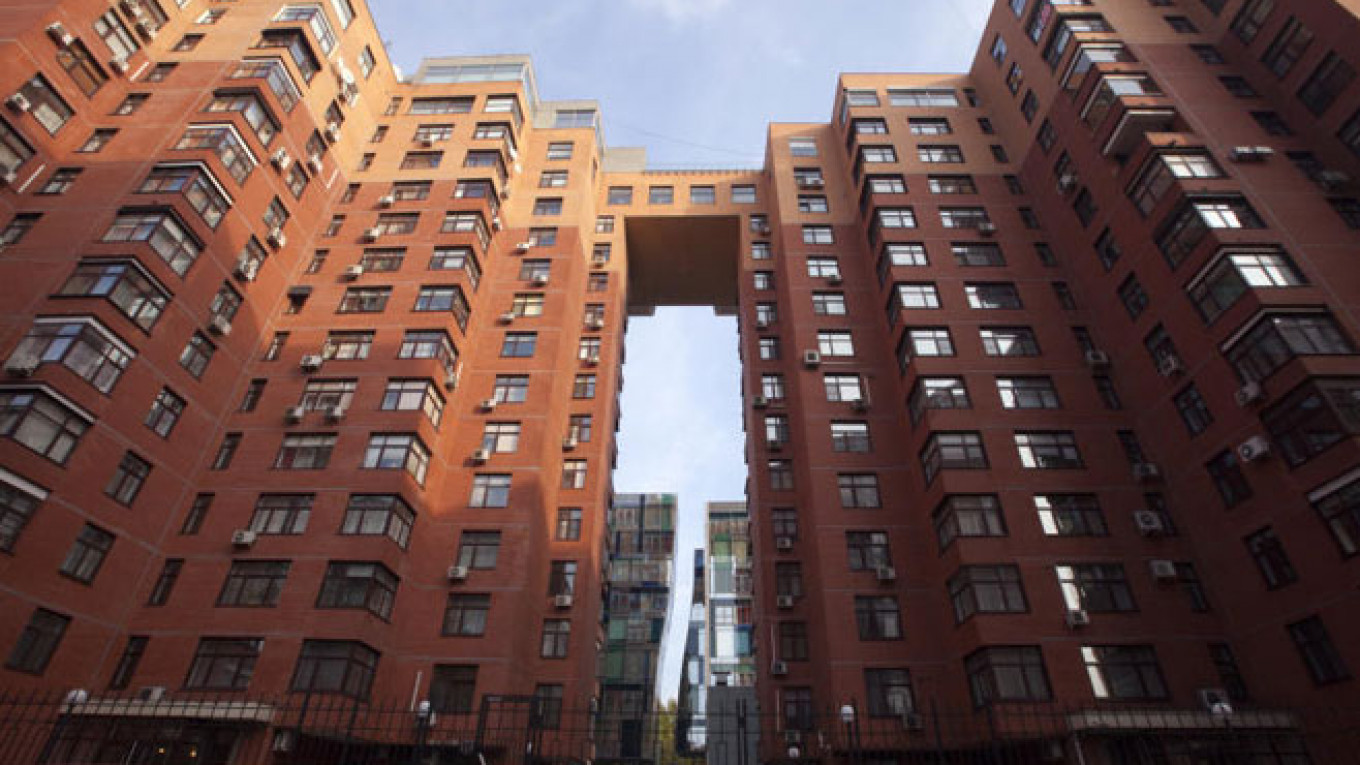Russian homeowners may soon be required to own their properties for at least seven years to sell them off tax-free, in a move that could potentially smother private investment in residential real estate, business daily Vedomosti reported.
State Duma Deputy Andrei Makarov submitted legislative amendments that raise the length of ownership necessary to free sellers from income tax on capital gains from real estate sales from the current three years to seven years during a meeting last week of the Duma's budget and tax committee, which he chairs, Vedomosti reported, citing a copy of the document.
Regional authorities would have the authority to reduce or even nullify the period of necessary ownership. The amendments will appear in an edited version of a tax bill that will soon go up for its second reading before the State Duma, the newspaper said.
The government has long been mulling mechanisms to increase revenues from real estate taxes, but has yet to find an effective solution. The Finance Ministry proposed another scheme earlier this year that would have abolished all taxes on the sale of a person's single residence, regardless of the length of ownership, but taxed the sale of any other property.
A member of the budget and tax committee, State Duma Deputy Anton Ishchenko, told Vedomosti that the new, 80-page-long proposal was approved at the meeting and will be examined more thoroughly this Friday.
Real estate experts polled by news agency RIA Novosti said the amendments would not impact average Russians, who tend to hold onto their properties for more than seven years, but would affect real estate investors.
However, the law could push real estate prices up, as "sellers will start to include the tax in the price of their property," Marina Tolstik, managing partner at real estate agency MIEL Group, told RIA.
There is another risk as well: Investors who had previously waited three years may now simply move into the underground economy to sell their properties, Maria Lipetskaya, head of real estate consultancy Metrium Group, told Vedomosti.
A Message from The Moscow Times:
Dear readers,
We are facing unprecedented challenges. Russia's Prosecutor General's Office has designated The Moscow Times as an "undesirable" organization, criminalizing our work and putting our staff at risk of prosecution. This follows our earlier unjust labeling as a "foreign agent."
These actions are direct attempts to silence independent journalism in Russia. The authorities claim our work "discredits the decisions of the Russian leadership." We see things differently: we strive to provide accurate, unbiased reporting on Russia.
We, the journalists of The Moscow Times, refuse to be silenced. But to continue our work, we need your help.
Your support, no matter how small, makes a world of difference. If you can, please support us monthly starting from just $2. It's quick to set up, and every contribution makes a significant impact.
By supporting The Moscow Times, you're defending open, independent journalism in the face of repression. Thank you for standing with us.
Remind me later.






